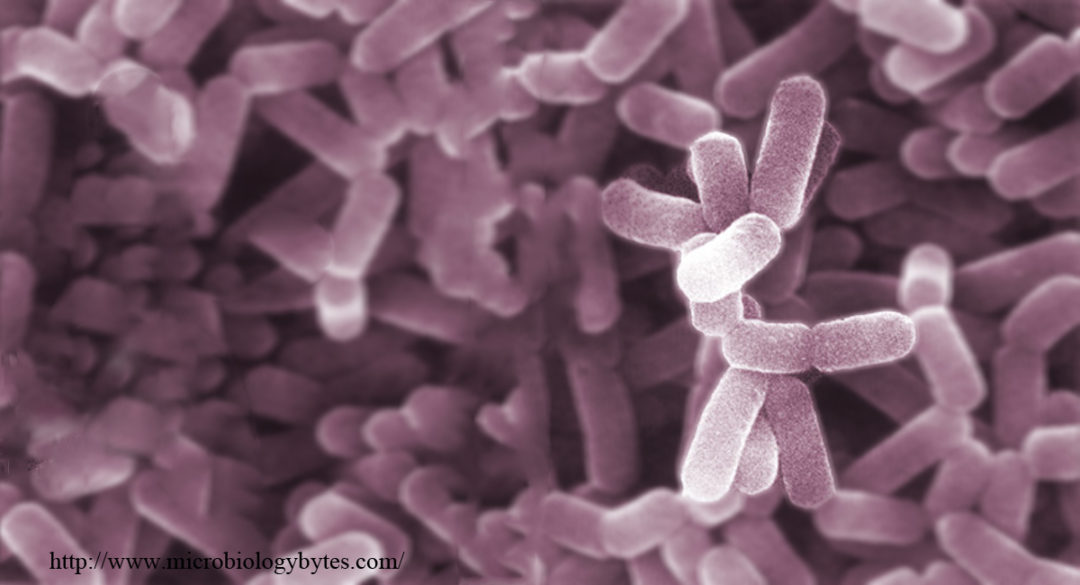Bacteria have been on this earth longer than humans and were indeed one of the first life forms on the planet. They are very resilient and have even been known to flourish on manned spacecraft. We tend to think of them as gross, dirty and bad. Some, indeed, are very dangerous but others are vital to our survival and to our well being. Looking after your gut bacteria can actually transform your health. However, getting the balance right can be very difficult and it’s resulted in numerous health problems for many people (maintaining a healthy weight without this balance is impossible for example). Probiotics can be very helpful to achieve this, especially if you often use antibiotics which upsets the balance of bacteria in the gut. I make sure I use antibiotics very rarely and take probiotics every day.
Here nutritionist, Fleur Borrelli, explains why bacteria are so vital.
(She advises that many probiotics aren’t up to the task but recommends the one I use which is Mega Probiotic-ND and also Bio-Kult Advanced Probiotic.)
Living in harmony with bacteria
 Throughout history we have interacted with nature and been exposed to a wide range of microbes. Our immune systems have had to differentiate between the bugs that want to kill us such as infections and the ones that are beneficial to us which are our own gut bacteria. These beneficial bacteria line our gastrointestinal tract from our mouth to our anus. We pick them up on our exit from the womb into the world and from the environment around us. It is our immune system’s interaction with these bacteria in our digestive tract that jump starts it into action to protect us for the entirety of our lives. We need this protection because the intestine is by far the body’s largest surface of contact with the outside world.
Throughout history we have interacted with nature and been exposed to a wide range of microbes. Our immune systems have had to differentiate between the bugs that want to kill us such as infections and the ones that are beneficial to us which are our own gut bacteria. These beneficial bacteria line our gastrointestinal tract from our mouth to our anus. We pick them up on our exit from the womb into the world and from the environment around us. It is our immune system’s interaction with these bacteria in our digestive tract that jump starts it into action to protect us for the entirety of our lives. We need this protection because the intestine is by far the body’s largest surface of contact with the outside world.
The microbial world in our guts is, therefore, integral to our health and wellbeing. It protects us against unwanted germs and organisms. It ensures bowel regularity. It produces nutrients such as B vitamins and vitamin K2 which is essential for bone health. It even converts the unhealthy fat linoleic acid into healthy conjugated linoleic acid which may protect us against cancer and inflammatory disease. Finally, it helps us to control asthma and reduces the likelihood of allergies.
Our bacterial balance is affected both by what our grandmothers ate and our exposure to local foods. It is negatively affected by the quality of our diet. Too much consumption of high starch nutrients such as cakes and biscuits as well as sugar can feed the bad bacteria and cause it to proliferate. Bottle feeding and overuse of antibiotics can also exact a heavy toll on microbial balance in favour of non-beneficial. Another negative factor may be that better hygiene has caused the loss of these organisms from the modern environment. These were organisms that we evolved with and were always a part of our heritage – we had to tolerate them.
Our immune system is failing to respond in the right way to immune challenge. No one can deny that there has been a massive increase in depression, allergies, auto-immune diseases, gut problems and inflammatory conditions – not to mention obesity. These diseases are all evidence of the failure of the immune system to respond appropriately – as we have originally done through the millions of years of evolution.
It is no wonder that we are creating a race of superbugs that are already outsmarting the best defences we have. A good start in redressing the balance would be to use antibiotics as a last resort, rather than a first step. If you do need antibiotics then follow your course with a quality probiotic product with various strains that is guaranteed to survive the acidic environment of the stomach to get to the gut. You can also take a probiotic on a daily basis as a preventative measure and natural antibiotic.
Most of the probiotic products in the supermarket will not be able to survive until they get to the bowel (see recommendations above). Organic live yoghurt may be a more effective option if you can tolerate dairy. Otherwise, eating fermented foods such as sauerkraut, pickles and miso are very effective ways of introducing probiotics to your system and may be a cheaper option. If you like coconut water then look on YouTube at the many recipes for coconut water kefir which also contains live strains. Please note that whether you are taking a probiotic or eating a fermented food such as sauerkraut, you may need to start off with small doses. Establishing good bacteria in your gut and getting rid of the unwanted ones can cause a little wind or bloating but this should pass within a matter of days. What will also help is clearing out your kitchen and bathroom cupboards of the multitude of surface disinfectants, antibacterial wipes and hand-sanitisers that you may have felt you had to buy. Environmentally friendly natural alternatives are made with plant and mineral ingredients and can be equally as a effective in shifting grime.
